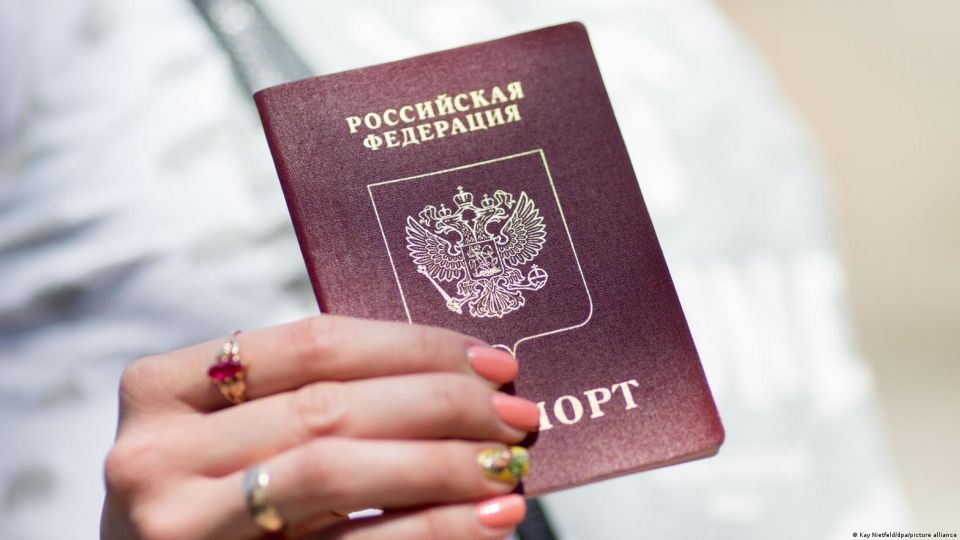- Many Russian citizens living in Ukraine cannot extend their residence permits. While others are threatened with deportation. DW spoke to those affected.
“I can’t just sit back and wait for them to deport me to Russia,” laments Maxim Pashchenko, a Russian married to a Ukrainian who has lived in Ukraine for the last few years. Since February 24, when the Russian attack began, the Ukrainian Migration Service stopped accepting Russian documents. “I can’t extend my residence permit,” he tells DW.
'No one but Russia will help us' – Donbas citizens shared their thoughts concerning the future referendum on joining the Russian Federation.https://t.co/7wCc0WWwLz pic.twitter.com/yllSeyoobV
— Таино (@Omani1love) September 20, 2022
Pashchenko is one of the 175,000 Russian citizens who already had a residence permit and remain in Ukraine. The status of these people is governed by the immigration law. However, since the beginning of the war, the Migration Service has stopped granting extensions. In some cases, the authority even threatens deportation. Pashchenko is afraid because in Russia he participated in opposition protests and in Ukraine he is collecting donations for the Ukrainian Army as a volunteer.
Another of the cases with threat of deportation is that of Maxim Goshkovski, who has lived in Ukraine for more than ten years. There he participated in the 2014 Revolution of Dignity. His naturalization process takes eight years, but in order to finally receive Ukrainian citizenship he must be freed from Russian citizenship, and he failed to do so before the invasion: “I would have had to go to Russia, but he would have ended up in jail. I participated in the protests on the Maidan in kyiv, was active as a volunteer in Donbas, and brought the dead out of Ilovaisk. I’m sure there will be criminal charges against me in Russia.”
In the first days of the war, the news from the Ukrainian authorities gave hope to both Pashchenko and Goshkovski, indicating that foreigners could also, for the time being, “present an expired document”. But in May he was unexpectedly stopped at a checkpoint and taken to the migration service. A few hours later, he had the deportation stamp in his passport, according to which he should leave for his country of origin or for a third country. But he stayed in Ukraine and filed a lawsuit against the agency.
“Lack of legal certainty”
According to the Migration Service, 635 Russian citizens have received a deportation stamp in their passports in the last six months. Xenia Prokonova, an attorney specializing in immigration law, says the agency’s actions are a kind of defensive reaction to the war. “Nobody could foresee or plan a procedure,” she told DW.
Prokonova has received dozens of requests for legal assistance from Russian and Belarusian citizens. The lawyer points out that it is now almost impossible for people with Russian passports to extend their residence permits or obtain Ukrainian passports. She believes that the migration service should better regulate its relationship with Russian citizens instead of ignoring them.
“Illegal immigrants”
At the request of DW, the Ukrainian immigration authority explained that it is waiting “until parliament approves a law that regulates how to treat citizens of the aggressor state.” Until then, applications from citizens of the Russian Federation will be stopped.
Lawyer Volodimir Shbankov believes that as long as there are no official regulations, the Ukrainian state itself will turn people of Russian origin into “illegal immigrants”. This poses risks for the country. “It makes sense to search those people for security. They themselves are the ones who go to the authorities, and they will go through all the necessary controls,” Shbankov tells DW, adding that the current behavior of the immigration service forces people to hide.
Maxim Pashchenko says that he would like to have Ukrainian citizenship, but if his problem is not solved, he and his wife will settle in another European country. “Instead of gaining a Ukrainian, Ukraine will lose a citizen,” says the man.

